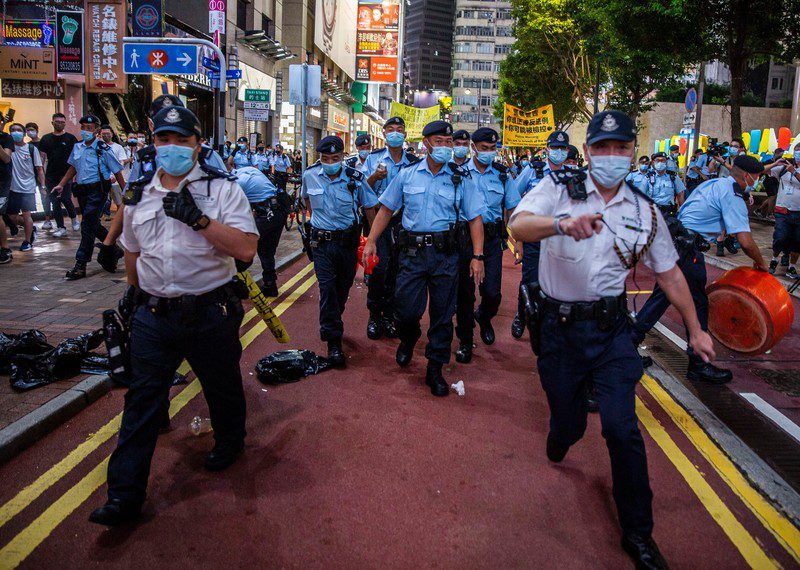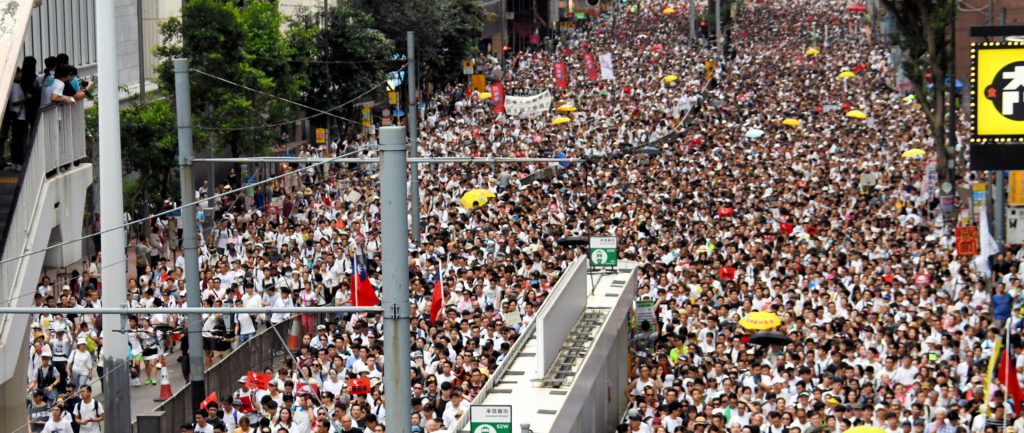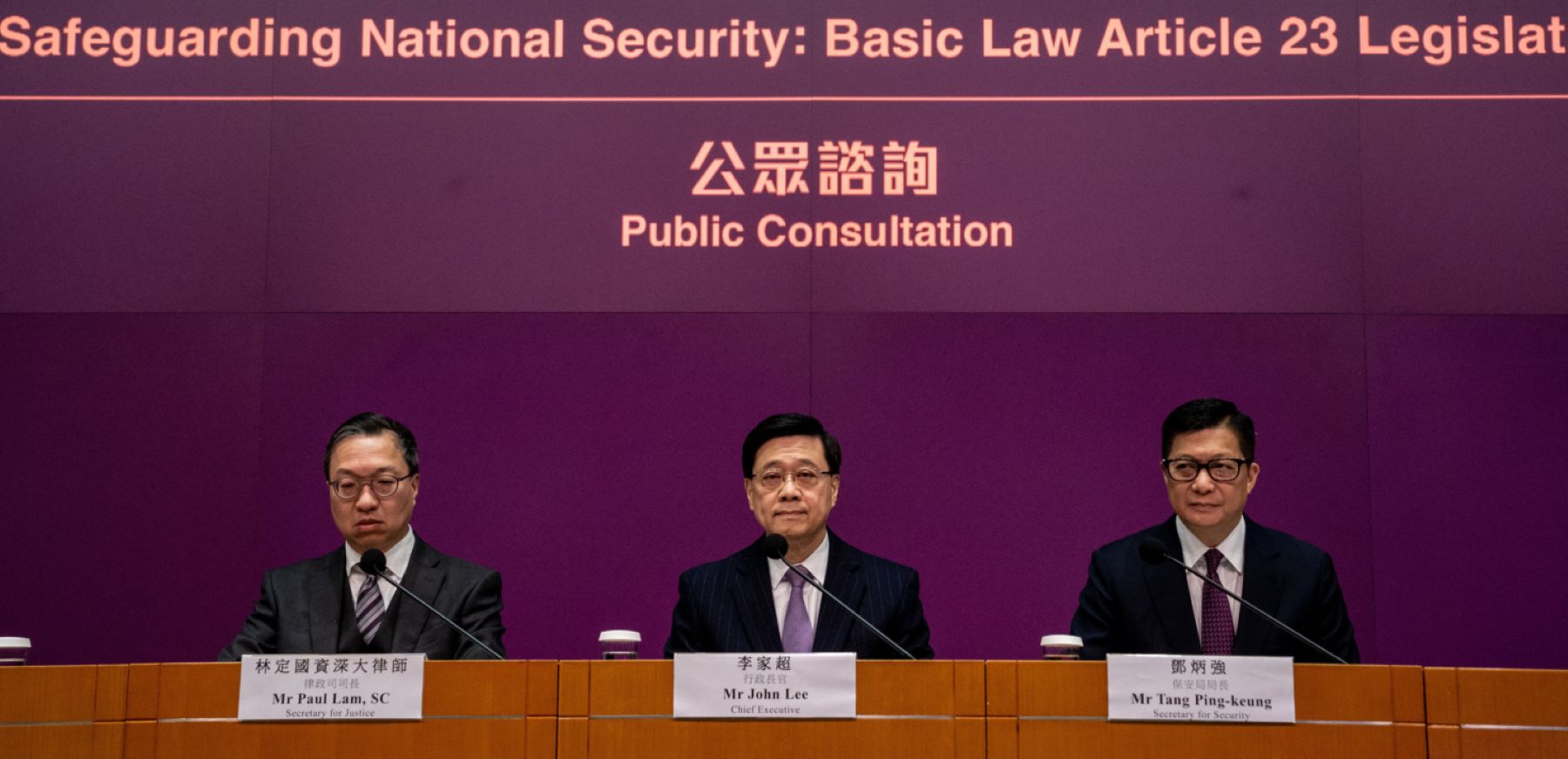The Hong Kong government has passed new national security legislation – known as Article 23 – that will severely undermine human rights in the city. Here are 10 key facts about the law:
This law is a quarter-century in the making
When Hong Kong was handed over to China by the United Kingdom in 1997, the two countries’ governments gave the city its own mini-constitution, called the Basic Law. Article 23 of the Basic Law states that Hong Kong “shall enact laws on its own” to prohibit seven types of national security offences. But such a law was never passed; a previous attempt to push through Article 23 in 2003 was scrapped following peaceful mass protests.
This time, protests have been restricted under other repressive laws, including the 2020 National Security Law (NSL), meaning authorities could rapidly enact Article 23 (officially now called the Safeguarding National Security Ordinance). While there is some overlap with the NSL, Article 23 has also created new offences, increased penalties for existing offences and given the government even more sweeping powers of enforcement.
China’s definition of “national security” and “state secrets” is now law in Hong Kong
The new law copies its definition of “national security” from mainland China, where it is a vague concept covering “major interests of the state”. In practice, this means basically everything.
The law also introduces mainland China’s definition of “state secrets”, which is extremely broad and can relate to any economic, social, technological or scientific developments, even when they have never been officially classified as secrets. In addition, the Chief Executive – Hong Kong’s leader – has the authority to certify whether any material involves state secrets. So again: in practice pretty much anything could be considered a “state secret”.
Interacting with foreigners is more dangerous
The Article 23 law creates thenew offence of “external interference”, which targets collaboration between any person and “external forces” and carries a maximum 14-year sentence. The details are once again extremely vague: the law states the collaboration with the “external force” must take place with “unlawful intent” and by “improper means”.
The law also expands the scope of espionage – you could now be charged with a possible 10-year sentence if you collude with an “external force” to publish a false or misleading statement.

So what exactly are “external forces”? Under Article 23, they can be foreign governments, foreign political parties, international organizations, foreign organizations pursuing political ends, or any related entity or individual associated with those bodies.
It is likely the law will be used to conflate legitimate cooperation between Hong Kong residents or groups with overseas institutions – for example in business, academia, civil society or even the UN – with criminal activity. Foreign citizens can also be prosecuted if they commit these “crimes” in Hong Kong.
Up to 10 years in jail for criticizing the government
The UK government abolished its sedition law in 2009 – with the Justice Minister at the time calling it an “arcane law from a bygone era”. However, the Hong Kong government has recently been making use of its own colonial-era sedition law – which had lain dormant for 50 years – and looks set to ramp up this tactic thanks to Article 23.
The new law expands the scope of the sedition law and increases the maximum jail sentence from two years to seven years (or 10 years if there is an “external force” involved). The law expressly states that an intention to incite violence is not necessary to convict a person of sedition, contrary to the common law principle that speech that doesn’t incite should not be punished under the law. This means that any criticism of the Hong Kong or Chinese government could potentially fall under its scope.
You could be jailed for not reporting others
This new national security law obliges any Chinese citizen (which includes most Hongkongers) to notify the police if they know that another person has committed, or is about to commit, treason. Failure to do so is punishable by up to 14 years in prison.
In effect, this imposes on people in Hong Kong a duty to spy on fellow residents. It is likely to increase the existing climate of fear among Hongkongers and prevent them from freely expressing opinions within their communities and social groups.
Extra powers for police, fewer legal rights for detainees
The new law grants sweeping new powers to the police when dealing with national security cases. With a Magistrate’s approval, they can detain someone for up to 16 days without filing any charges (previously it was two days). They can also prohibit the person from consulting any lawyer in the first 48 hours after their arrest, or a chosen lawyer while in detention.
Hong Kong’s leader can create new laws on their own
Under the new law, the Chief Executive may make subsidiary legislation anytime on their own initiative in the name of “safeguarding national security”. This subsidiary legislation can come into effect immediately, and could carry a maximum penalty of seven years’ imprisonment.
Theoretically, the subsidiary legislation should not exceed the scope of the Article 23 law, but the vague and broad wordings of the law create plenty of scope for arbitrary law-making.

New powers to target Hongkongers overseas
In a move designed to target the diaspora community and activists who have moved abroad, the law confers new powers on the government to punish “absconders” who are accused of – not convicted of – committing national security offences. The government can now take measures such as cancelling people’s Hong Kong passports or suspending their professional qualifications (e.g. lawyer licences).
Vague new offence targeting technology
The law introduces a new offence of “acts endangering national security in relation to computers or electronic systems” – with a potential 20-year prison sentence and extra-territorial effect applying to anyone in the world. However, the law does not define these “acts”. The government merely cited the “rapid development of technologies” and potential hacking during the consultation period. This lack of legal clarity and the overbroad definition clearly leave this offence open to arbitrary abuse.
The law was enacted in an opposition-free Hong Kong
Article 23 has always been a controversial issue due to its restrictions on human rights. Back in 2003, the government was forced to shelve plans to enact the law when 500,000 people marched in protest against it.
But Hong Kong in 2024 is a very different place. The National Security Law, passed in 2020, has almost completely silenced opposition voices. Many activists, journalists and opposition politicians have been arrested; others have fled. Peaceful assemblies opposing government policy are now either prohibited or heavily restricted.
It is against this backdrop that the government has been able to finally pass Article 23 legislation, knowing its opponents would be virtually powerless to stop it.
Protect Human Rights Defenders
Human rights lawyer and labour rights advocate Chow Hang-tung faces up to 10 years’ imprisonment.
Top image © Getty Images





















